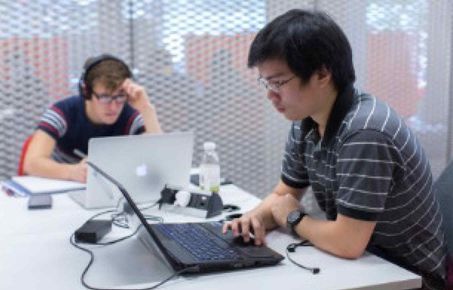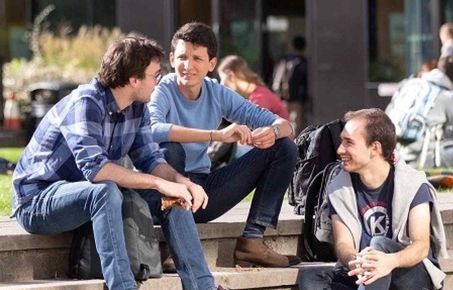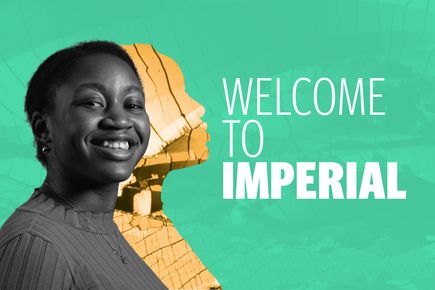This Hub provides a space where you can find all the information you need before you arrive at Imperial, as well as access to your pre-entry e-modules, which you can join by clicking the link to the right.
Please make sure you have a look and ensure you address each point on the list of key information before your first day at Imperial.
This Hub also holds some basic information about your course and the main staff involved in the delivery of your Medical Biosciences programme. Finally, you will on this page find information about Welfare, Student representatives and IT guidance. We hope you find this helpful.
Key Information: Registration and Welcome
Registration and photo ID card
Register online from early September 2024 via My Imperial. If you have any problems during registration, please email: service.desk@imperial.ac.uk or telephone +44 (0)20 7594 9000 with your College Identifier (CID number) and a description of the problem. Remember if you are an international student who requires a visa to study at Imperial, you need to provide details and a scanned copy of your up-to-date passport and visa at Registration. Read more about the extra requirements you will need to follow here.
As part of your registration, you will also be asked to upload a photograph for your ID card before 24 September. Please ensure the picture you upload is professional. Any photos not uploaded by the 24 September deadline will, without exception, need to be retaken in-person at the ID Card Office, which can cause access issues for the first weeks of the course. If you have any problems related to your ID card, please email: id.card@imperial.ac.uk. If you will be living in College accommodation, and have in a timely manner registered and uploaded photo as per above, you will be given you your ID card upon arrival in your new home. If you are living outside College accommodation and have done all the required, you will be handed your ID card on Welcome Week.
iPad
You must activate your College account before you can complete the iPad Agreement Form. You will be provided with a free iPad at the start of your course. Your iPad will be handed out during Week One, but you must fill out the iPad Agreement Form in advance using this link. You will need to sign in using username@ic.ac.uk. Please note that the deadline for this is 24 September.
Welcome Week programme
You need to be here ready to start your studies by September 28th. Your welcome week will run from 30 September - 05 October. You can find your Welcome Week schedule as organised by the School of Medicine here. For international students, there is also an Imperial wide International Welcome Event on Sunday, 29th September which you can attend. Be sure to read more about Your Welcome Journey and your Next Steps. You can find events hosted by Imperial College Union here.
Start of Term Q&A
This year, our start of term live Q&A session was hosted by ICSMSU representatives Brian Matsuhashi and Michael Liu and second-year student Jacob Kelleher. If you were unable to attend the session, or would like to re-watch, you can find a link to the video here.
Your Course
- Introduction to BMB Modules
- Course information
- What are Lab Pods?
- Where will you be taught?
- Transition to BMB
- What is Flipped Classroom?
This interactive module guide will introduce you to the modules across the three years of Medical Biosciences (BMB) programme at Imperial College London.
In the autumn term, you will study three theoretical modules: Chemistry of Biological Interactions (CBI), Statistics (STAT) and Molecular and Cellular Biology (MCB). You will begin to develop critical thinking and problem-solving skills to tackle challenges facing human health today through these theoretical modules. You will also start learning about the Lab Pod 1 (LP1) module and how it will integrate, develop and consolidate theoretical topics covered throughout the year. In the spring and summer terms, you will complete two additional modules: Integrative Body Systems (INTS) and Lab Pod 1 (LP1). LP1 is an innovative laboratory-based programme providing the opportunity to learn practical and analytical skills at the laboratory bench. This laboratory-based programme continues on Year 2 of the BMB course, so that on reaching Year 3, you are fully prepared to embark on a project of your own.
Our interdisciplinary programme offers an innovative approach to learning. We teach theoretical modules through face-to-face teaching (team-based learning and other small group teaching). You will be provided with an iPad to enable you to fully engage with our e-learning materials. You will experience flipped learning, where you are provided with all of the information you would usually receive in a lecture in advance, and then consolidate your knowledge through active learning in class. The expectation is that you fully prepare for each interactive learning session using the provided learning materials (for example, e-modules) and there is plenty of space in the timetable for you to engage with this preparatory work.
Theoretical knowledge and practical transferable skills will increase in complexity over the three years of the course so that you gradually develop your critical thinking, analytical skills and ability to evaluate information.
We have a very strong focus on practical laboratory work throughout the course starting with Lab Pod 1, your first year Lab Pod module. You mirror an authentic research lab - answering real scientific questions, designing and performing experiments to test hypotheses as well as experience first-hand the process of scientific research.
In the Spring and Summer terms you will complete your Lab Pod 1 modules in person, with some introductory Lab Pod 1 sessions in the Autumn term.
You can also learn more about Lab Pods from a student point-of-view by watching the video on YouTube here. This is made by two of our students, Ni and Akeefa.
During your first year, you will be taught between the South Kensington Campus – largely in the Sir Alexander Fleming Building teaching spaces – as well as on the Hammersmith Campus where your labs will take place. You will visit both campuses during welcome week in October.
Links to each campus can be found here: Hammersmith Campus and South Kensington Campus
This e-module has been designed to help you learn more about the BSc Medical Biosciences programme at Imperial College London. As you navigate through the different sections of this e-module you will learn more about how your study skills may change to help you transition from school/college to university, how you will be taught on the programme in particular what flipped classroom is as well as who is there to help you when you start university. We recommend that you look through this before you arrive at Imperial! We look forward to welcoming you.
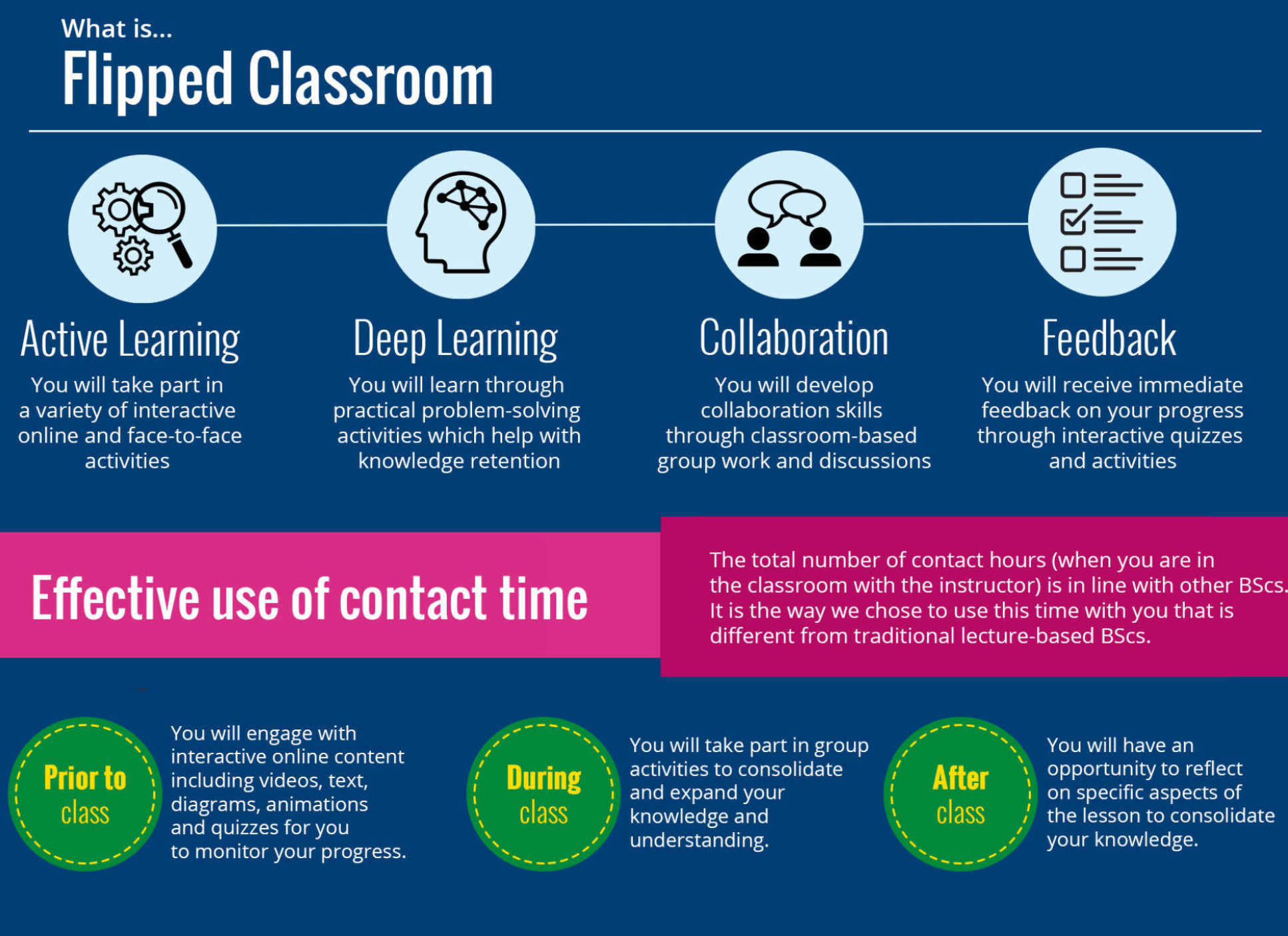
Meet the Team
Professor Alison McGregor
/prod01/channel_3/media/migration/faculty-of-medicine/alison-mcgregor_1629457438390_x4.jpg)
Professor Alison McGregor
Professor McGregor is the Course Lead for Medical Biosciences
Dr Niamh Martin
/prod01/channel_3/media/migration/faculty-of-medicine/niamh-martin_1629457525896_x4.jpg)
Dr Niamh Martin
Dr Martin is Head of Year 1
Dr Liz Want
/prod01/channel_3/media/migration/faculty-of-medicine/liz-want_1629457606695_x4.jpg)
Dr Liz Want
Dr Want is Head of Year 2
Dr Vania Braga
/prod01/channel_3/media/migration/faculty-of-medicine/vania-braga_1629457678347_x4.jpg)
Dr Vania Braga
Dr Braga is Head of Year 3
Dr Kirsty Flower
/prod01/channel_3/media/migration/faculty-of-medicine/kirsty-flower_1629457923628_x4.jpg)
Dr Kirsty Flower
Dr Flower is Head of Academic Skills and Tutoring
Welfare & Tutoring Information
All students are allocated an Academic Tutor when they join the School of Medicine. The role of an Academic Tutor is to provide support to students. Academically, this can involve reviewing exam results and other feedback, providing career advice and writing references, as well as assisting with BSc and/or elective choices. Pastorally, your Academic Tutor should be your first line of approach for guidance and advice if you are experiencing any personal issues or problems affecting your studies.
Throughout your later years of study, you are advised to meet with your Tutor at least once per term – it is important to build a rapport and maintain a relationship with your Tutor not only so you have someone to approach if you have a problem, but also so you have someone who knows you well and will be able to sign your elective forms and references.
Please watch the video with Academic Tutoring Lead for BMB, Dr Kirsty Flower on YouTube here.
All students have access to a Senior Tutor who is available to support welfare and wellbeing concerns you have when you start at Imperial. Your Senior Tutor is the main point of contact for special arrangements for assessments, adjustments you might need to support your learning and for financial support during these difficult times. The Senior Tutor can also make referrals for you to the Health Centre, Occupational Health and Mental Health advisor team – they are confidential and here to make sure you succeed without any health or difficulties impacting you.
At the School of Medicine, we work closely with our colleagues in Occupational Health and Disability Advisory Service to best support our students who may need further assistance in completing their medical degree due to their disability. The General Medical Council’s guidance of “Welcomed and Valued” will highlight the steps Institutions will take to support you. If you are successful in passing our admissions requirements – you can read more on our website, we would then encourage you to reach out to our Disability Advisory Service before you join to discuss arrangements and requirements.
You have access to a bespoke Welfare Team specifically for undergraduate students in the School of Medicine.
You can approach them for confidential advice on a wide range of issues, such as:
- Accessing support services in the College
- Urgent mental health support
- Wellbeing meetings about adjustments on the programme
- Financial worries and accessing the School of Medicine hardship fund
- Advice on accommodation
The welfare team are also responsible for managing the tutoring programme. They also work closely with your School of Medicine Student Union (ICSMSU) to build campaigns, change the welfare provision and better your services.
If you contact feo.welfare@imperial.ac.uk, it will be one of this team who will respond to your enquiry. You can also have a look at our Wellbeing E-Module, which gives you an overview of the support that is available.
The FEO Welfare Team is made up of Hannah Behague, Carly Line, Juliette Wiredu, and Sandra Roscoe.
ICSM Students' Union and BMB Society
A message from the School of Medicine Student Union President, Lilia Evans.
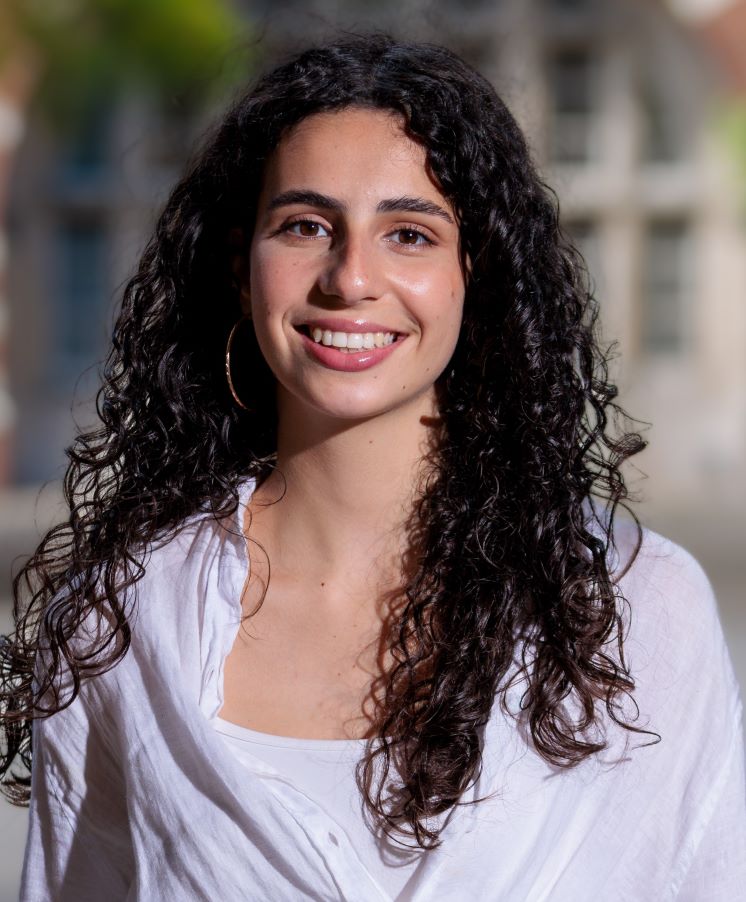 "Welcome to the BSc Medical Biosciences course!
"Welcome to the BSc Medical Biosciences course!
My name is Lilia and I am your ICSMSU President for 2024-2025. Along with 22 amazing student officers, we make up the vibrant team that is ICSMSU! From Academic and Welfare support, to organising wonderful events like Freshers’ Fortnight or supporting ICSMSU’s Clubs and Societies, we are here to represent our students in every capacity. We're really excited to have you join us here at Imperial.
Within ICSMSU we have more than 65 clubs and societies you can get involved in. Starting university is the perfect opportunity to try something new and to meet new people so I would definitely encourage joining at least one! Clubs & Societies are the heart of ICSM's community, offering opportunities to develop new skills, receive both academic and personal support and to become part of a supportive family that will accompany you throughout your time at ICSM.
You're joining one of the best faculties of medicine in the world and you should be immensely proud to be part of our ICSM family. We're a diverse community and you'll be sure to find like-minded people and meet friends for life. From your very first year, you'll be able to get involved with representation by running to be the academic or welfare representatives of your year. Keep an eye out for these opportunities soon after you start!
Starting university can be a difficult time, especially if things don't go as planned or become overwhelming, but do not worry - there's always somebody who can help. Both the ICSMSU Welfare and Faculty Welfare team are available if you need someone to talk to. We hope that in our friendly and supportive community, you will feel able to learn and have fun in a comfortable, safe environment.
ICSMSU is here to help you and if you have any questions, we'll be easy to find - find our contact information on www.icsmsu.com and check out our Instagram (@icsmsu) for any updates!"
- ICSMSU Website - https://www.icsmsu.com/
- ICSMSU Instagram - https://www.instagram.com/icsmsu/?hl=en-gb
A message from the President of the BMB Society, Anant Pratap Singh
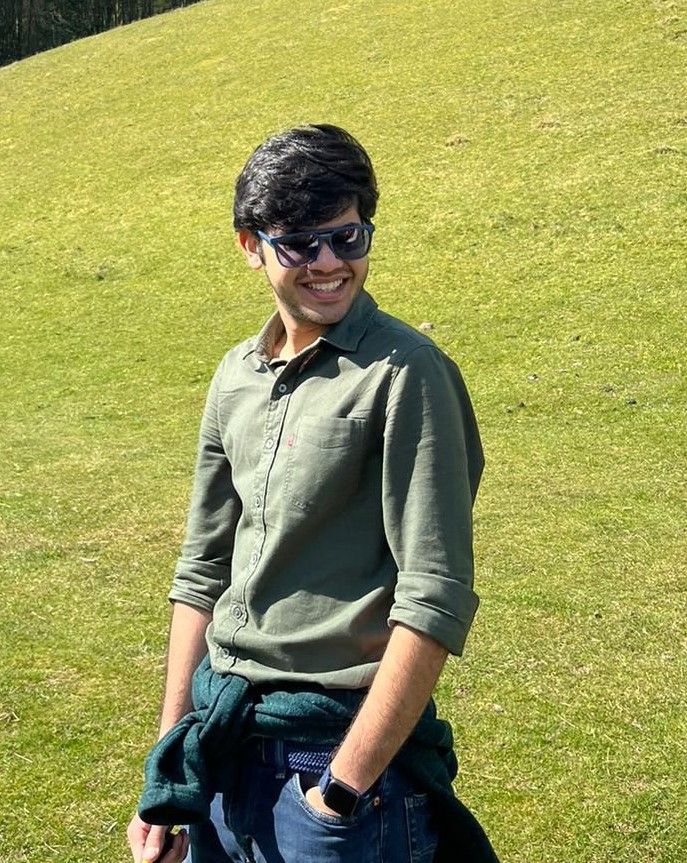 "Welcome to Medical Biosciences at Imperial!
"Welcome to Medical Biosciences at Imperial!
I’m Anant, a 3rd Year student and your BMB President this year.
We in BMB are in the unique position where we’re part of BMBSoc, ICSM’s Student Union, and the wider Imperial College and Union communities. It can feel overwhelming with where to start, but all these communities are very friendly and super open, so you’ll fit right in.
In my position, I am BMBSoc’s President and have an exec position in ICSMSU. This has allowed both the committees to create an exciting environment for all things BMB, so hope you’re looking forward to all the events and support we’re bringing to you this year!
While the unique flipped method of learning at BMB might seem strange, don’t worry – you’ll have enough face-to-face time with the cohort and teachers. And trust me, it works so much better than lectures! Labs are super interesting with a massive self-directed project throughout Terms 2 & 3, and this genuinely teaches us highly sought after lab skills.
Outside of academics, the Imperial and ICSM community are host to so many clubs, societies and projects (CSPs). With over 65 ICSMSU clubs and over 300 ICU ones, there is something for everyone! Check out some of our wilder ones like I did by getting your SCUBA diving license, or volunteering with St John Ambulance, or climbing Mt. Everest for charity with IC RAG.
Settling into university can be tough but we at BMBSoc and ICSMSU are here with you throughout your time at Imperial. We can help with all things Academic, Welfare, Course-related, pastoral, or anything else!
We’d love for you to get involved with BMBSoc and ICSM, so look out for our brand-new positions on the BMBSoc committee and for the Academic and Welfare Representatives in October.
Make sure you follow us on Instagram: @icsm.bmb and join your year group chat when you get the invite!
See you soon!
Anant"
ICT Guidance
ICT has prepared a useful, informative and engaging online welcome pack for new students to get to grips with key IT resources at the College. With the increase in remote teaching and learning, ICT understand how important it is to provide robust and easy to use services that support our students learning experience at the College.
Here a list of all the help you need when you are online:
- The ICT resources for new students website contains key information including details on how to activate your College account, get connected to College services, access learning tools such as Blackboard and Panopto and how to access software for you course.
- The information on the website has also been condensed to fit in a handy pocket guide. Students can access this online and find printed versions of the guide at the ICT Service Desk, which will be located on the South Kensington campus.
- There is an ICT Support YouTube playlist consisting of a range of helpful “how to videos” covering a broad range of topics.
- New students can learn how to remotely access library journals, their saved files, software and much more by following guidance on our access IT resources remotely web pages.
- The College’s Inclusive Technology web pages provide information on software and other applications that students can use to improve their study efficiency. There are useful tools for note taking, revision and time management.
- The Office 365 web pages are a good starting point for students to learn about Office 365, features and applications that are available at the College and how it can benefit them.
- IT security is very important. Awareness of potential scams and an understanding of how to stay safe online can go a long way in protecting students from possible cyber-attacks. Follow our Be Secure web pages for more information. There is also a Security YouTube playlist consisting of a range of videos covering various important security information.

/prod01/channel_3/media/images/people-list/James-Gardiner-People-List.jpg)
